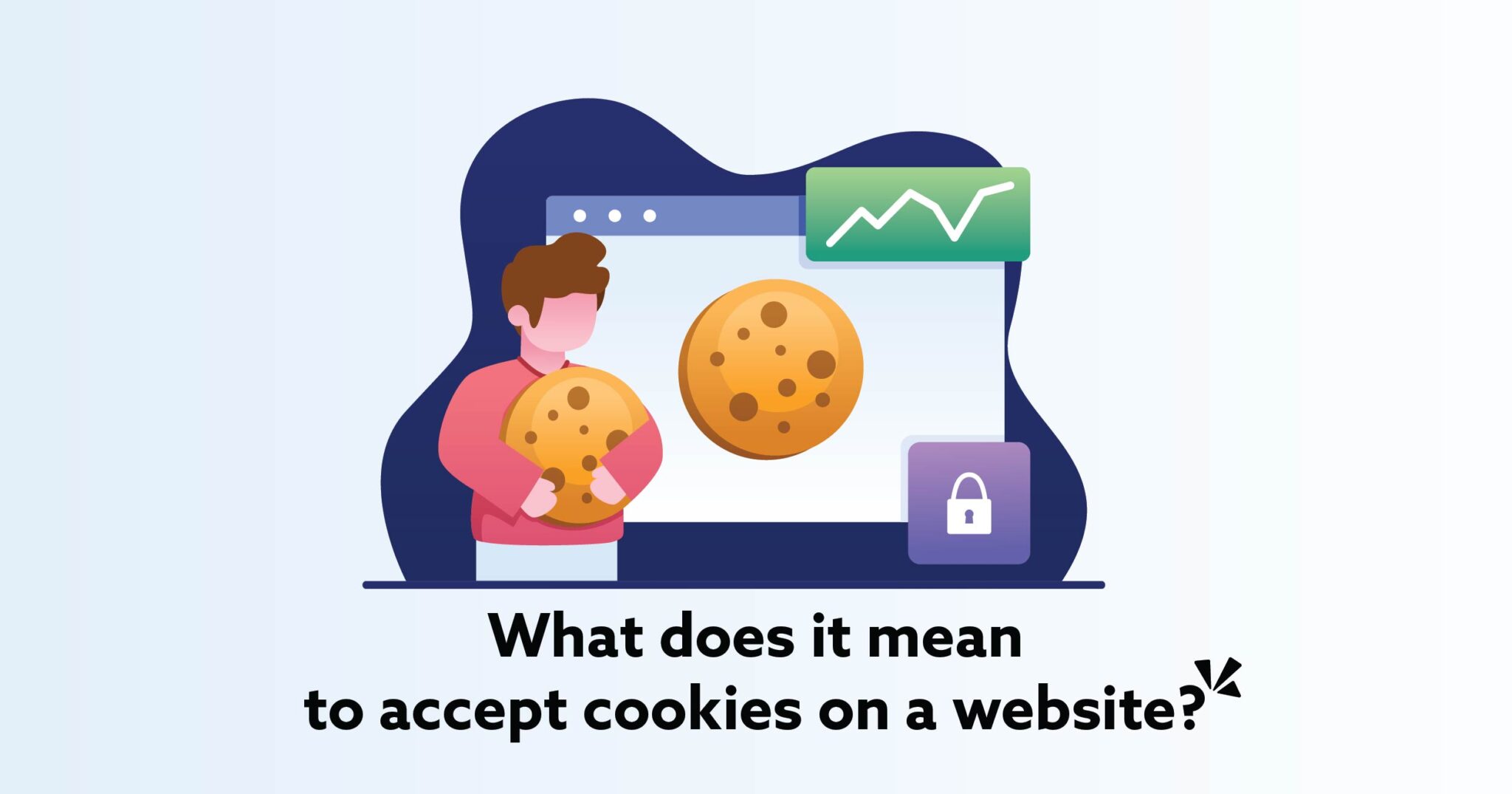What does it mean to accept cookies on a website?

At some point we have all been browsing a website and had the notorious pop-up ask us if we would like to accept all cookies or block them, but what exactly does this mean? Allowing cookies on your device means giving permission for websites to track, store, and retrieve information on your device, typically through your web browser. Cookies are small text files and serve various purposes, including remembering your preferences, improving user experience (remembering pages you browsed, items you added to your shopping cart etc.), using the information to customize content, provide personalized recommendations, serve you targeted ads, and helping websites function efficiently.
There are a few different types of cookies:
- Session cookies: These are temporary and expire when you close your browser.
- Persistent cookies: These remain on your device until they expire, or you delete them manually.
- First-party cookies: Set by the website you are visiting.
- Third-party cookies: Set by domains other than the one you are visiting, such as advertisers or social media platforms embedded in the site.
It’s important to note that while cookies can enhance user experience, they also raise privacy concerns. Some users may choose to manage or block cookies through browser settings to control their online privacy and limit tracking.
The Benefits of Accepting All Cookies
- Enhanced Personalization
One of the primary benefits of accepting cookies is the enhanced personalization of your online experience. When you allow cookies, websites can remember your preferences, such as language settings, themes, and content recommendations. This means that every time you visit a site, you’re greeted with a more tailored experience, saving you the hassle of reconfiguring settings.
- Seamless User Experience
Cookies play a crucial role in ensuring a smooth and seamless browsing experience. They store your login credentials, so you don’t have to re-enter them every time you visit a website.
- Faster Load Times
Cookies can also help improve load times. They store certain elements of a webpage on your device, which means that when you revisit the site, it can load faster because it doesn’t need to fetch those elements again.
- Relevant Advertising
Cookies enable more relevant advertising by tracking your interests and browsing habits. While this might sound intrusive, it means that the ads you see are more likely to be of interest to you. For instance, if you’re shopping for running shoes, cookies can help ensure that you see ads related to athletic gear rather than unrelated products.
- Improved Website Functionality
Some cookies are essential for the functionality of websites. They can store items in your shopping cart, remember your progress in online forms, or keep track of your session state. Without these cookies, certain website features might not work properly or might require additional input from you.
Managing Your Cookies
While accepting all cookies has its advantages, it’s important to manage them wisely. Most modern browsers allow you to view and delete cookies, as well as set preferences for how cookies are handled. If you’re concerned about privacy, you can opt to accept cookies from trusted sites while blocking those from less familiar sources.
Scenarios Where You Should Consider Declining All Cookies
- Visiting Untrusted or Unknown Websites
When visiting websites you don’t know or trust, it’s prudent to be cautious with cookies. These sites might use cookies to track your browsing behavior without your consent or might have weaker security practices, making your data more vulnerable. By declining cookies from such sites, you reduce the risk of your personal information being misused.
- Concerns About Tracking and Privacy
If you’re worried about being tracked across multiple websites, you might choose to block third-party cookies. These cookies are often used by advertisers to track your browsing habits and deliver targeted ads.
- Protecting Sensitive Information
For websites where you input sensitive information—such as online banking or healthcare portals—declining cookies can add an extra layer of protection.
- Using Public or Shared Computers
When using public or shared computers, such as those in libraries or cafes, it’s a good practice to decline cookies.
While cookies can offer significant benefits for personalization and convenience, there are times when opting out or managing them carefully is the better choice. By declining cookies from untrusted sites, protecting sensitive information, and managing data accumulation, you can safeguard your privacy and enhance your online security. Balancing the advantages and risks associated with cookies is key to maintaining a secure and enjoyable browsing experience. Always stay informed about how your data is used and take proactive steps to manage your digital footprint.